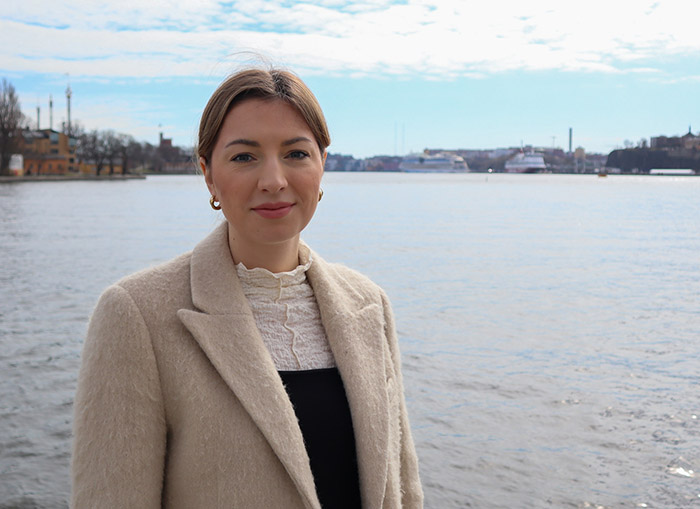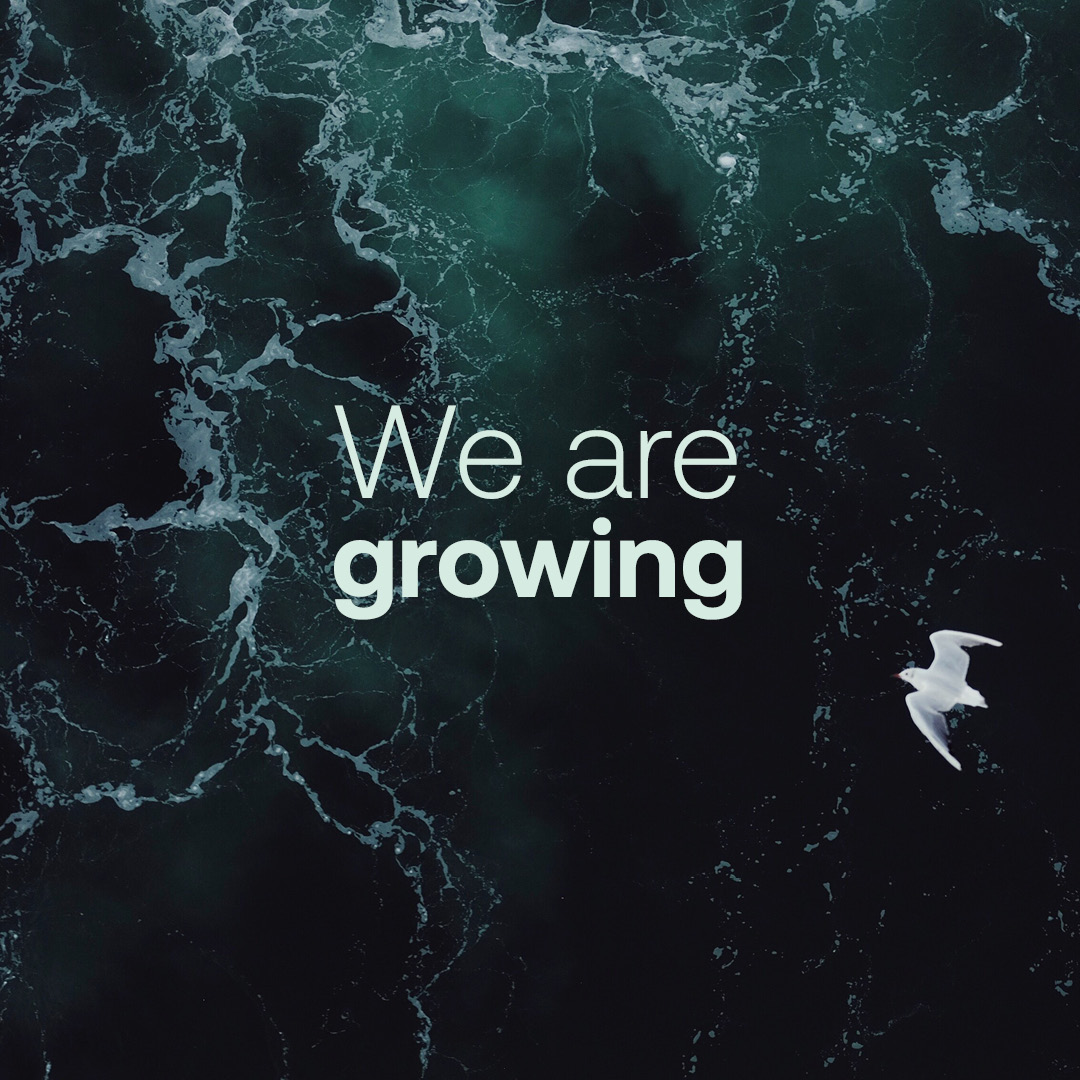She is new to the role as Analyst fishing and fisheries policy, but she is not new to BalticWaters. Amanda Öberg spent her first post-graduation period as a trainee at the foundation in 2021, and since then she has worked as a research communicator at the Department of Soil and Environment at the Swedish University of Agricultural Sciences. Now, days filled with projects linked to agricultural and forestry issues are exchanged for working for a change in fisheries policy.
Since her university days, Amanda has been interested in geopolitics and conflicts of interest linked to natural resources. And there are plenty of conflicts of interest in fisheries.

Photo: Madeleine Kullenbo, BalticWaters
“It is completely incomprehensible how fisheries management works today. There are ways to protect fish stocks, but politicians have not yet managed to take the necessary decisions. If it was well known how the fish is managed, and what the consequences are in the short and long term, I think there would be many more people dedicated to the issue,” says Amanda.
Her interest in the Baltic Sea grew during her time as a trainee.
“I had an interest in the Baltic Sea before, but it didn’t develop into a real commitment and passion until I started at the foundation,” says Amanda.
Now Amanda hopes to contribute to create insight in how fishing in the Baltic Sea works and why, and – based on research – explain what measures are needed. And she is very happy to be doing this at BalticWaters.
“BalticWaters is a small organisation with a big heart and a lot of power to change. I want to be part of that work,” she concludes.
We wish Amanda a warm welcome (back) to the foundation!
Quick facts
Name: Amanda Öberg
Education: Bachelor’s degree in international relations from the University of Gothenburg and a master’s degree in strategic communication from Lund University.
Previous job: Research communicator at SLU
Favourite species in the Baltic Sea: Common jellyfish! I spent a lot of time on Öland as a child and at the time I thought jellyfish were mostly scary, but as an adult I have realised how beautiful and cool they are! I think the fact that they are transparent is reason enough to call them my favourite species.
The first thing I will do in my new role: I will start by analysing the Baltic Sea policy of the parliamentary parties for the upcoming EU elections in June. I will also travel to Copenhagen to meet other fisheries stakeholders in the Baltic Sea Advisory Council.

